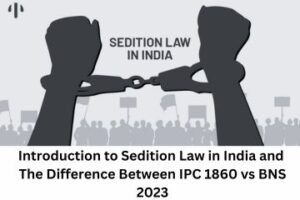Marriage and Divorce Regulations in India
Table of Contents
- 1. Introduction
- 2. Marriage Regulations in India
- 3. Divorce Regulations in India
- 4. Recent Legal Developments and Reforms
- 5. Challenges in Marriage and Divorce Regulations
- 6. Conclusion
Marriage and divorce are significant aspects of personal law in India, influenced by religious, cultural, and legal norms. India, being a diverse country with multiple religions and customs, has distinct laws governing marriage and divorce for different communities. This article provides an in-depth look into the regulations, procedures, and implications of marriage and divorce in India.
1. Introduction
Marriage in India is not just a legal contract but a social and religious sacrament. The laws governing marriage and divorce in India are complex and vary across different communities. Understanding these regulations is essential for navigating the legal landscape surrounding marital relationships in India.
2. Marriage Regulations in India
2.1 Hindu Marriage Act, 1955
The Hindu Marriage Act, 1955, governs marriages among Hindus, Buddhists, Jains, and Sikhs.
Key Provisions:
- Conditions for Marriage: The Act specifies conditions such as age (minimum 18 years for females and 21 years for males), mental capacity, and prohibitions on close relatives.
- Ceremonial Requirements: Marriages must be solemnized according to customary rites and ceremonies.
- Registration: While not mandatory, marriage registration is recommended for legal validity and proof.
2.2 Muslim Personal Law
Muslim marriages in India are governed by Islamic law as interpreted through the Muslim Personal Law (Shariat) Application Act, 1937.
Key Provisions:
- Nikah (Marriage Contract): A Muslim marriage is a civil contract requiring mutual consent.
- Mehr (Dower): An obligatory payment from the groom to the bride.
- Polygamy: Permitted, with conditions, allowing a man to have up to four wives simultaneously.
2.3 Christian Marriage Act, 1872
The Christian Marriage Act, 1872, regulates marriages among Christians.
Key Provisions:
- Age and Consent: Minimum age of 18 years for females and 21 years for males, with mutual consent required.
- Ceremonial Requirements: Marriages must be performed by a licensed minister or registrar.
- Registration: Mandatory for legal validity.
2.4 Special Marriage Act, 1954
The Special Marriage Act, 1954, provides for inter-religious marriages and those who choose to marry outside their religious personal laws.
Key Provisions:
- Conditions for Marriage: Similar to other acts, including age and mental capacity.
- Notice of Intended Marriage: A 30-day notice period before the marriage can be solemnized.
- Registration: Mandatory, making the marriage legally binding and recognized across all communities.
3. Divorce Regulations in India
3.1 Hindu Marriage Act, 1955
The Hindu Marriage Act also governs divorce among Hindus, Buddhists, Jains, and Sikhs.
Grounds for Divorce:
- Adultery
- Cruelty
- Desertion (for at least two years)
- Conversion to another religion
- Mental Disorder
- Incurable Leprosy
- Venereal Disease
- Renunciation of the World
- Presumed Death (missing for seven years)
Divorce by Mutual Consent:
- Requires mutual agreement and a six-month waiting period after filing.
3.2 Dissolution of Muslim Marriage Act, 1939
Muslim divorce is governed by the Dissolution of Muslim Marriage Act, 1939, and the personal laws.
Key Provisions:
- Talaq: Pronouncement of divorce by the husband.
- Khula: Divorce initiated by the wife.
- Faskh: Judicial annulment of marriage by a court.
Grounds for Divorce:
- Similar to other acts, including cruelty, desertion, and inability to provide for the wife.
3.3 Indian Divorce Act, 1869
The Indian Divorce Act, 1869, governs divorces among Christians.
Grounds for Divorce:
- Adultery
- Cruelty
- Desertion (for at least two years)
- Conversion to another religion
- Incurable Insanity
- Incurable Leprosy
Divorce by Mutual Consent:
- Requires mutual agreement and a one-year separation period before filing.
3.4 Special Marriage Act, 1954
The Special Marriage Act also governs divorce for marriages solemnized under this act.
Grounds for Divorce:
- Similar to those under the Hindu Marriage Act, including adultery, cruelty, desertion, and mutual consent.
4. Recent Legal Developments and Reforms
4.1 Triple Talaq Ban
The practice of instant triple talaq (talaq-e-biddat) among Muslims was declared unconstitutional by the Supreme Court of India in 2017 and subsequently banned by the Muslim Women (Protection of Rights on Marriage) Act, 2019.
4.2 Irretrievable Breakdown of Marriage
There have been calls for recognizing “irretrievable breakdown of marriage” as a ground for divorce across all personal laws to simplify the divorce process.
4.3 Uniform Civil Code
The debate over a Uniform Civil Code (UCC) aims to replace personal laws based on religion with a common set of laws governing marriage, divorce, and inheritance for all citizens, promoting equality and secularism.
5. Challenges in Marriage and Divorce Regulations
5.1 Legal Pluralism
The coexistence of multiple personal laws can lead to inconsistencies and complexities in legal proceedings, often causing delays and confusion.
5.2 Gender Inequality
Some personal laws have been criticized for perpetuating gender inequality, particularly in matters of divorce, maintenance, and inheritance.
5.3 Access to Justice
Many individuals, especially women, face challenges in accessing legal remedies due to social, economic, and cultural barriers.
6. Conclusion
Marriage and divorce regulations in India reflect the country’s rich diversity and complex legal landscape. While significant progress has been made in modernizing and harmonizing these laws, challenges remain in ensuring gender equality and access to justice. Continuous legal reforms and awareness are essential to address these issues and protect the rights and dignity of individuals in marital relationships.




